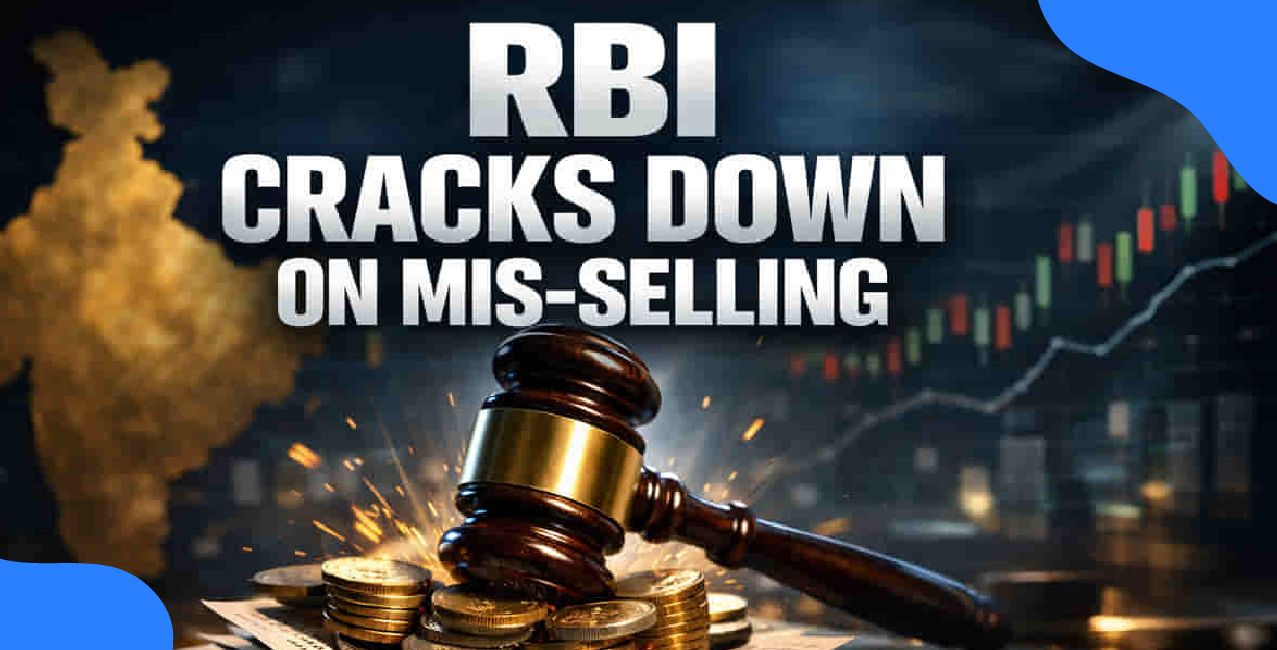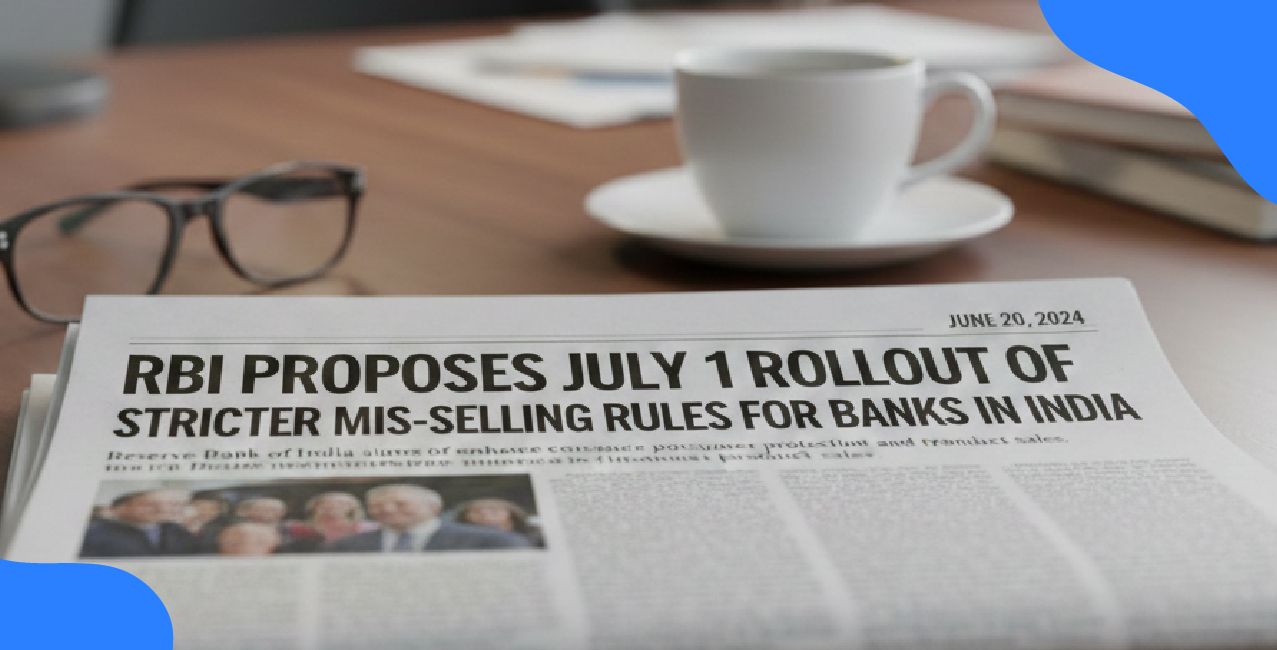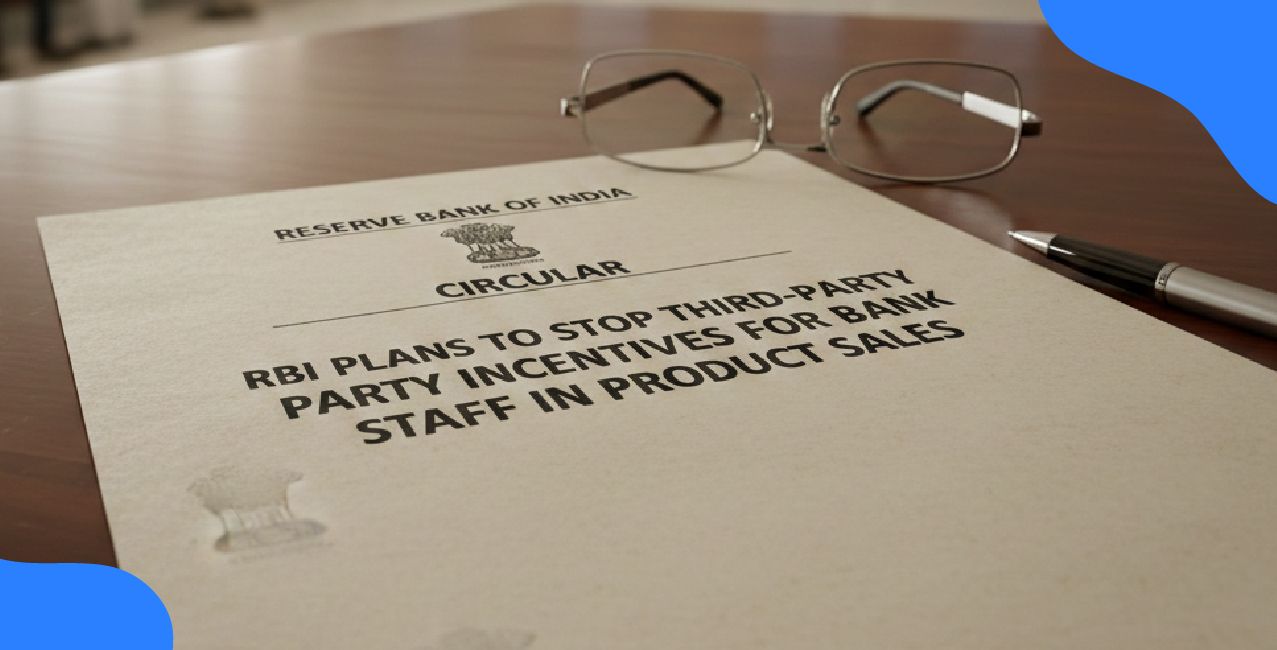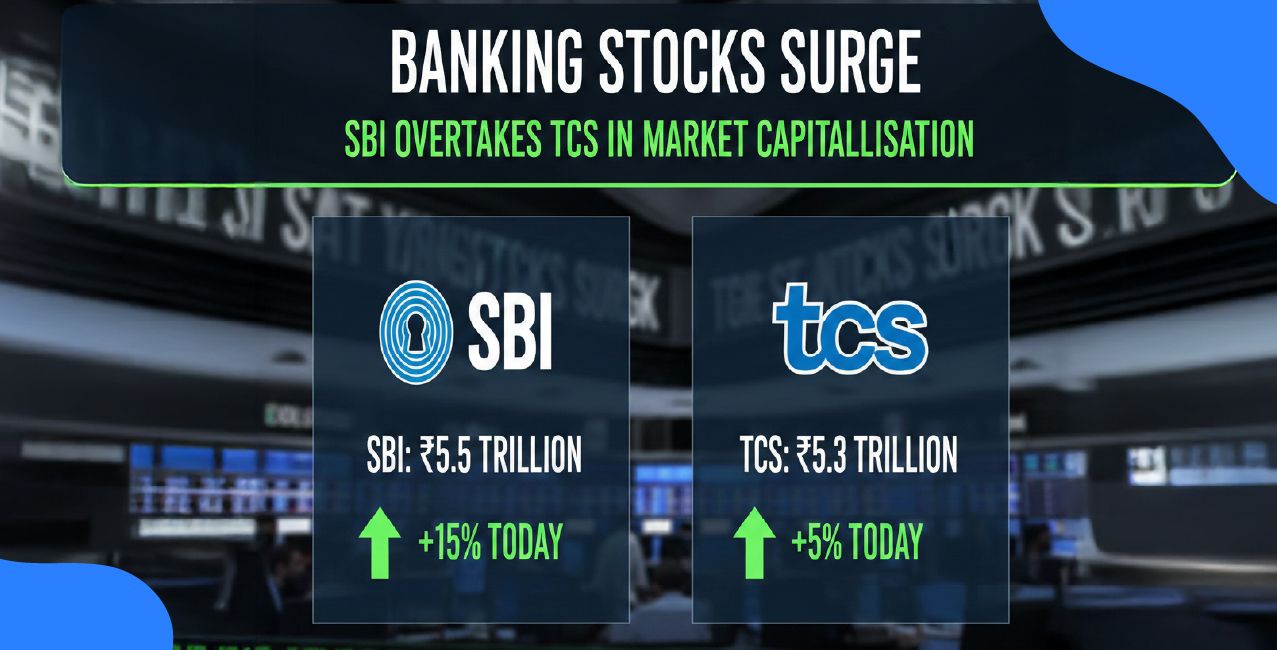RBI Imposes ₹21 Lakh Penalty on PhonePe for PPI Norm Violations

Check Your Loan Eligibility Now
By continuing, you agree to LoansJagat's Credit Report Terms of Use, Terms and Conditions, Privacy Policy, and authorize contact via Call, SMS, Email, or WhatsApp
Rapid growth and an escalated level of scrutiny from the central bank, this sentence describes India’s FinTech Situation in 2025. Recently, the Reserve Bank of India (RBI) fined PhonePe Limited ₹21 lakh for lapses in its handling of Prepaid Payment Instruments (PPIs).
This case highlights a broader tension: how digital payments firms balance speed, growth, and compliance. Below we unpack what happened, what rules were breached, why they matter, and what this means going forward.
What Happened: Key Findings in RBI’s Inspection
Between October 2023 and December 2024, RBI carried out a statutory inspection of PhonePe's operations.
Here are the core findings:
- Escrow Account Shortfalls: On certain days, the end-of-day balance in PhonePe’s escrow account was less than the value of outstanding PPIs (funds loaded into wallets) and payments due to merchants. In simple terms, PhonePe did not always have enough funds in escrow to cover what it owed via its prepaid payment instrument obligations.
- Delayed Reporting of Shortfalls: PhonePe did not immediately report these shortfalls to the Department of Payment & Settlement Systems (DPSS) of the RBI when they occurred. Reporting such shortfalls promptly is mandated under RBI’s PPI guidelines.
- Regulatory Process Followed: After identifying these lapses, RBI issued a “show cause” notice to PhonePe, allowing it to make written submissions, and held a personal hearing. PhonePe responded. After considering the responses, RBI found the charges warranted, and imposed the monetary penalty.
The penalty amount is ₹21 lakh (21,00,000 rupees). It is important to note that RBI clarified that this penalty is strictly for regulatory/ compliance deficiencies; it does not impugn the validity of transactions or agreements with customers.
Also, this is not PhonePe’s first penalty. It has previously been fined in 2019 (₹1 crore) and 2020 (₹1.39 crore) for other PPI guideline violations.
What the PPI Norms Are, and Why Escrow & Reporting Rules Matter?
To understand why RBI takes these lapses seriously, we need to know what the PPI guidelines require, especially for non-bank entities like PhonePe.
- What are PPIs (Prepaid Payment Instruments)?
PPIs are instruments that allow a person to load value (money) into a wallet or instrument. PPI instruments can then be used to buy goods and services (including financial services) up to the stored value, without necessarily having to pull funds directly from a bank account for each transaction.
Digital wallets are a common example. These are regulated because they hold customer funds in advance of usage.
- Escrow Account Requirement:
To protect customer funds, the RBI requires that non-bank PPI issuers maintain escrow accounts. Funds loaded by users should be parked in these escrow accounts, so that obligations (wallet balances, merchant payments, etc.) are backed.
At the end of each day, the balance in this escrow must not be less than the outstanding PPI amounts plus payments due to merchants. If a company has higher obligations (wallets + payments to merchants) than funds, it means customer or merchant payouts may be at risk.
- Reporting Shortfalls:
If there is any shortfall (i.e. escrow balance < outstanding obligations), the PPI issuer must report it immediately to the RBI (specifically DPSS). This helps the regulator monitor liquidity, trust, and safety of customer funds.
- Other related norms include transparency, KYC, risk management, safeguarding customer data, constructing grievance redressal mechanisms, and adhering to guidelines under relevant laws (Payment and Settlement Systems Act, 2007, etc.).
These norms exist because PPIs effectively hold prepayments (advance funds) of customers. Mismanagement or opacity can lead to loss of trust, misuse of funds, liquidity risk, and in worst cases, customer or merchant losses if a wallet operator fails.
Regulatory Powers, Legal Basis & Implications
- Legal Authority: The RBI acted under powers given by the Payment and Settlement Systems Act, 2007, specifically Section 30(1) read with Section 26(6). These provisions give RBI the power to inspect payment system providers, direct them, and impose penalties in case of non-compliance.
- Why Even a Small Penalty? ₹21 lakh might appear modest for a big fintech firm. But the size of the penalty isn’t always just about the monetary impact. Fines serve a regulatory signalling purpose. They remind all PPI operators—especially non-banks—that the rules are mandatory and being monitored. Even smaller lapses can erode trust if not addressed.
- Precedents: As mentioned, PhonePe has already been penalised twice before (2019 and 2020) for PPI compliance issues. This indicates a pattern of regulatory oversight in this domain and suggests that RBI is keeping closer tabs.
- Risk of Larger Consequences: Continued non-compliance might lead to stricter penalties, reputational risk, or more intrusive supervisory action. Possible effects include more frequent inspections, restrictions on operations, or tightening of licensing norms.
Why This Matters: For PhonePe, For the PPI Sector, For Consumers?
- Consumer/Merchant Confidence: PPIs hold customer money, often for future or on-demand transactions. Any risk or perception of risk—such as escrow shortfalls—can undermine confidence. Merchants expecting payments must also trust that the wallet operator has funds to settle dues.
- Operational & Financial Discipline: Maintaining escrow often means tighter cashflow management. The company needs to match the rate of customer wallet top-ups, spending, merchant settlements, and ensure there are ready liquid funds. Lapses suggest possible mismatches or delays.
- Regulatory Oversight Intensifying: Digital payments is one of the fastest growing segments in India. The RBI wants to ensure risks do not accumulate (fraud, misuse, systemic risk). This penalty sends a message to all players that compliance is not optional.
- Cost vs Benefit: For PhonePe, the monetary cost of ₹21 lakh is small, but the administrative cost, reputational cost, and compliance cost to ensure such lapses do not recur could be higher. But in the long run, clearer compliance mechanisms, internal audits, and prompt reporting can reduce risk.
Conclusion
The RBI’s recent fine of ₹21 lakh on PhonePe is more than just a regulatory footnote—it underscores how even small compliance gaps in fintech are under scrutiny. The digital payments ecosystem depends on trust, especially because companies are custodian-like, holding funds ahead of their use.
PhonePe has been around the block with compliance penalties before, which suggests this is not an isolated oversight but part of recurring regulatory enforcement. Going forward, it’s likely that regulators will continue tightening checks on PPIs, especially non-bank issuers.
For PhonePe and its peers, investing in effective compliance, liquidity management, and timely reporting isn’t just about avoiding fines, it is integral to sustaining growth in a sector where credibility is key.
For users and merchants, this is (or should be) reassuring. It shows that regulatory checks are working, that oversight is active, and that there are consequences for mismanaging customer or merchant funds. But it also means that digital wallet firms must be proactive about their internal controls.
Other News Pages | |||
About the author

LoansJagat Team
Contributor‘Simplify Finance for Everyone.’ This is the common goal of our team, as we try to explain any topic with relatable examples. From personal to business finance, managing EMIs to becoming debt-free, we do extensive research on each and every parameter, so you don’t have to. Scroll up and have a look at what 15+ years of experience in the BFSI sector looks like.
Subscribe Now
Related Blog Post

Home Loan Interest Rates 2025 Deliver Major EMI Relief, Will Borrowers See More Gains In 2026?

Will the Indian Rupee Stabilise in 2026 After a Volatile 2025?
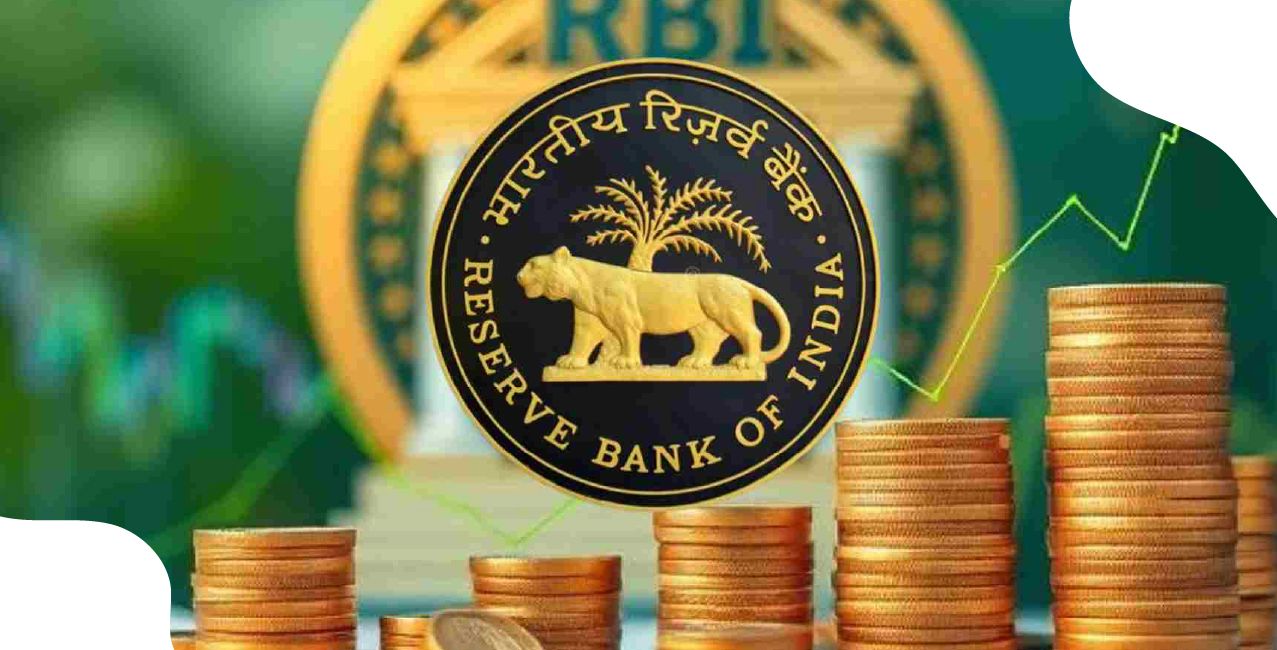
RBI Draft Rules Target Surprise Costs in Overseas Payments
Recent Blogs
All Topics
Contents
Quick Apply Loan
Consolidate your debts into one easy EMI.
Takes less than 2 minutes. No paperwork.
10 Lakhs+
Trusted Customers
2000 Cr+
Loans Disbursed
4.7/5
Google Reviews
20+
Banks & NBFCs Offers
Other services mentioned in this article
